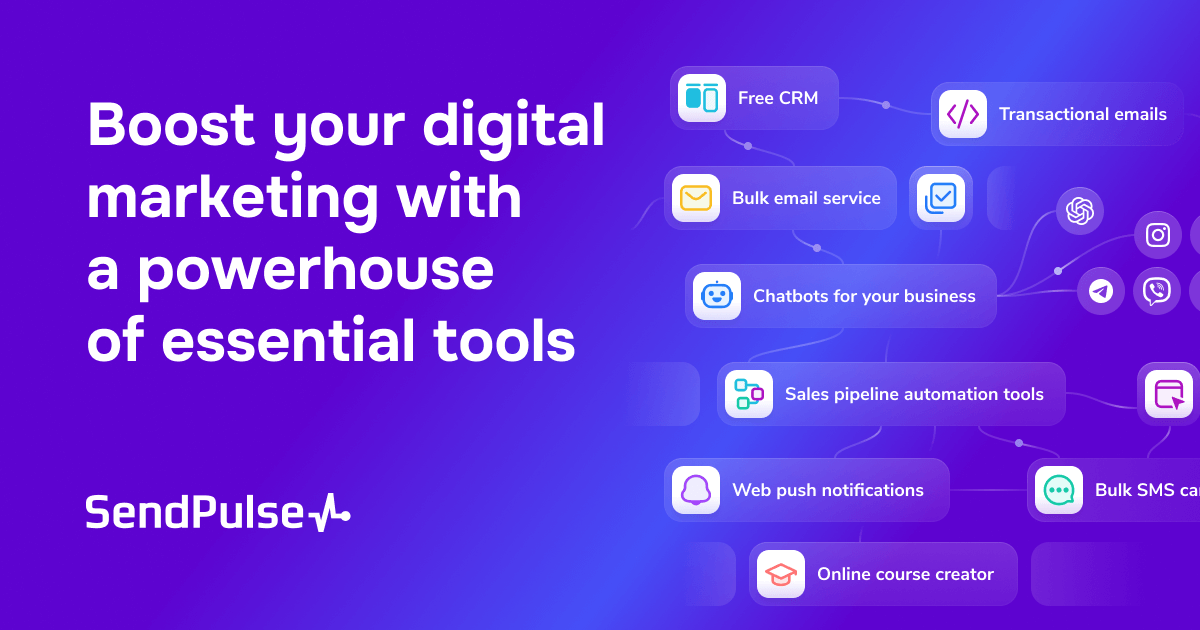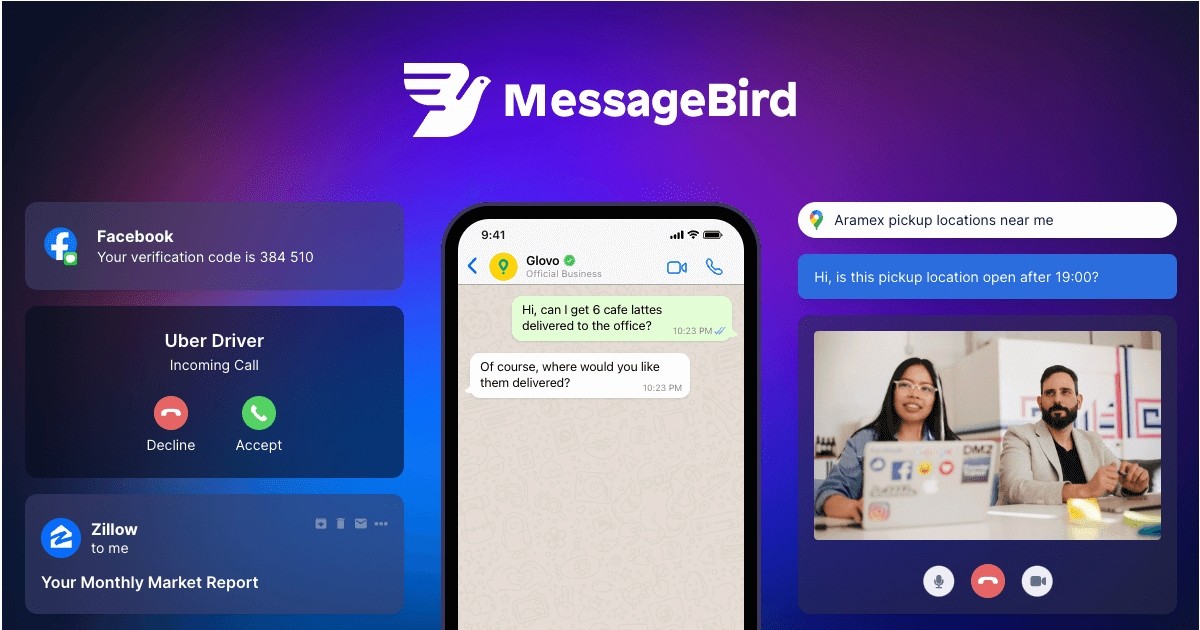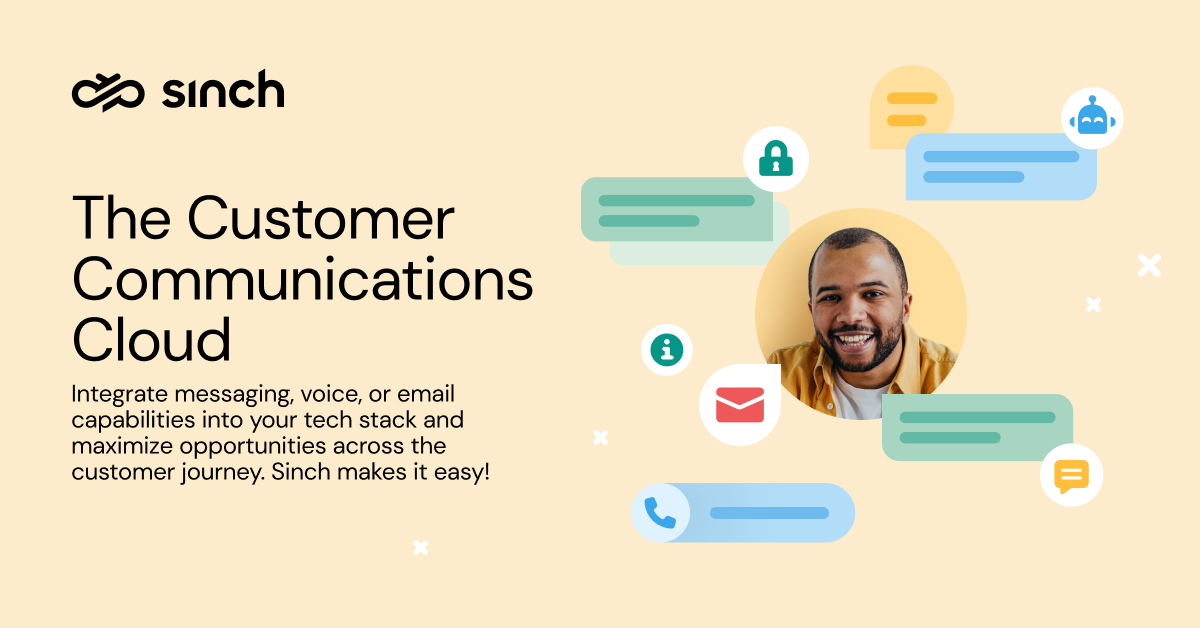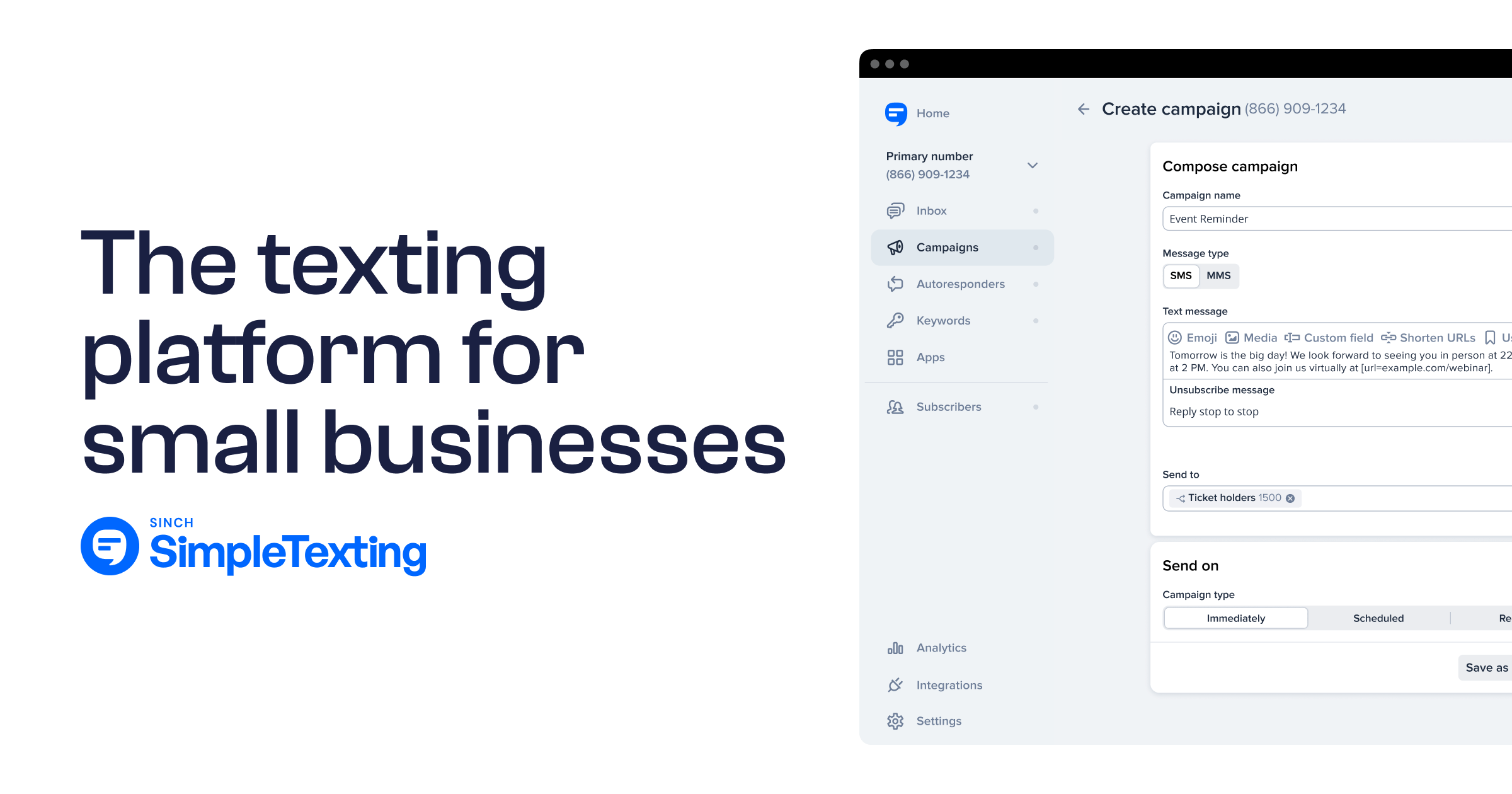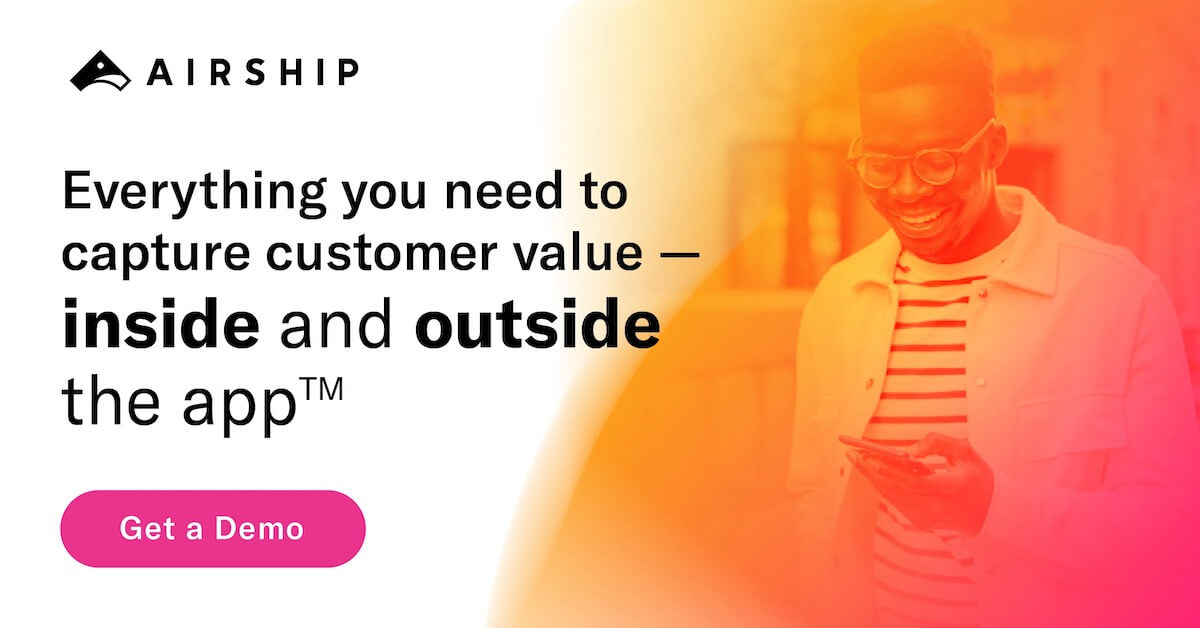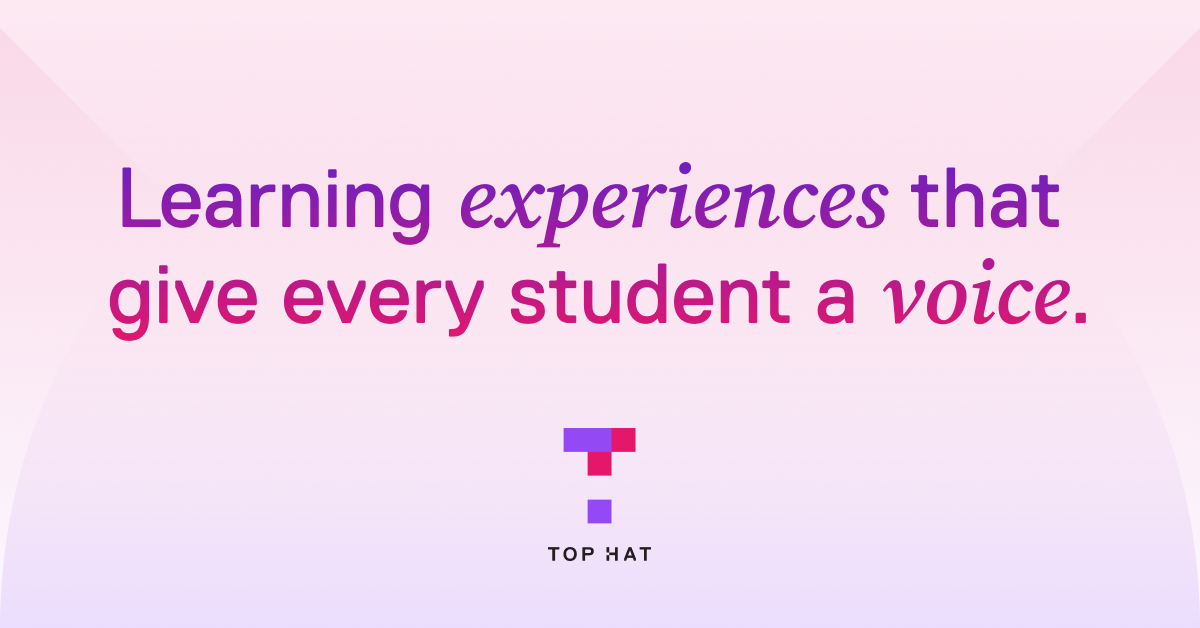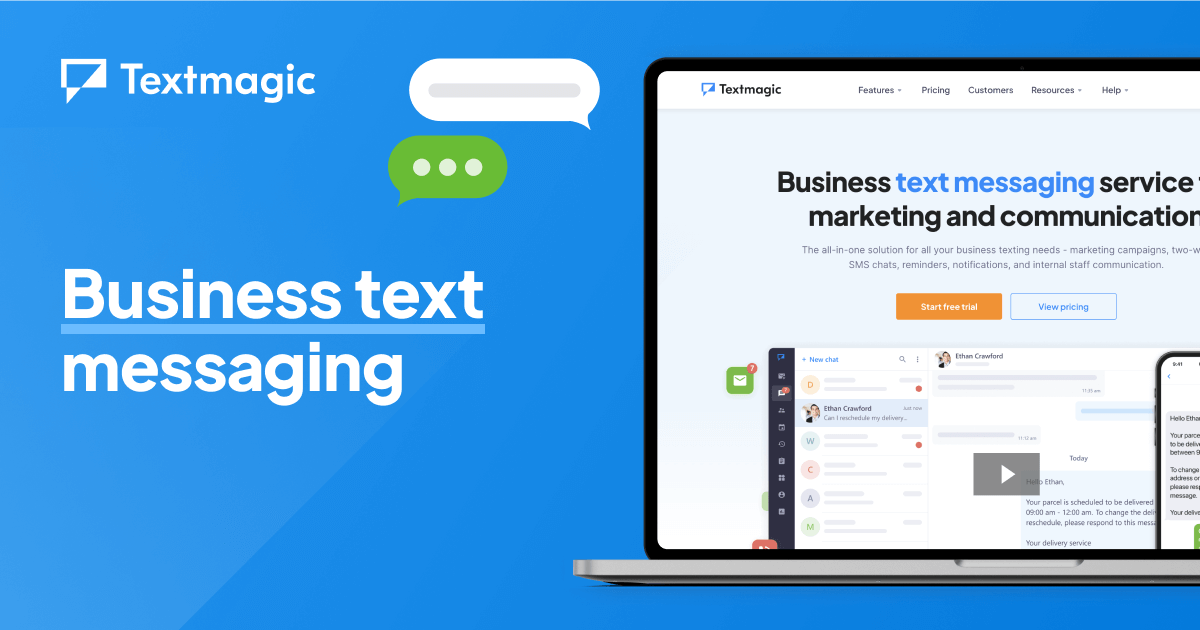Introduction
SMS marketing has established itself as one of the most effective digital marketing channels for businesses of all sizes. According to studies, SMS campaigns see close to 100% open rates and many people respond within 3 minutes of receiving the text message. However, with numerous software in the market, choosing the right SMS tool can be daunting. This guide evaluates 15 leading SMS marketing platforms based on critical criteria to help you pick the perfect solution.
Methods of Evaluation
The platforms are evaluated based on traditional factors like features, pricing, ease of use, support quality etc. Additionally, we also considered modern metrics like number of backlinks, keyword ranking trends and organic traffic to gauge real customer sentiment and market leadership. Shortlisting is done based on reviews from industry experts as well as real user reviews and ratings on third party sites. Top platforms are then selected based on a comprehensive score across all evaluation parameters.
1. MailChimp
MailChimp is a leading marketing automation and email platform for small businesses. Founded in 2001, MailChimp provides an all-in-one platform for email marketing, SMS text messaging, landing pages, social media marketing and more. With over 15 million users worldwide, MailChimp allows businesses of all sizes to easily create, send and analyze marketing campaigns.
Pros: Some key advantages of MailChimp include:
– Powerful email marketing tool with SMS capabilities
– Integrates well with email campaigns and other marketing tools
– Provides a wider range of analytics and automation options
– Offers a robust suite of apps for social media marketing, landing pages and more
Cons: One potential disadvantage is that the free plan has limited functionality and more advanced features require upgrading to a paid plan starting at $10/month.
Pricing: MailChimp offers both free and paid plans. The free plan allows sending to up to 2,000 subscribers and includes basic email and list building features. Paid plans start at $10/month for essentials (up to 12,000 subscribers), $30/month for standard (up to 3,000 contacts) and $299/month for elite (unlimited contacts).
Some key stats about MailChimp include:
– Over 15 million active users worldwide
– Sends over 20 billion emails each month
– Integrates with over 350 tools including Shopify, WordPress, QuickBooks and more
– Offers both free and paid plans starting from $10/month
2. SAP Digital Interconnect
SAP Digital Interconnect is a leading SMS marketing platform developed by SAP, a giant in enterprise applications and technologies. As part of SAP’s CX portfolio for customer engagement, SAP Digital Interconnect allows businesses to integrate SMS messaging capabilities with other SAP products like CRM and ECC.
Pros: Key advantages of SAP Digital Interconnect include:
– Part of SAP CX portfolio for customer engagement
– Integrates with SAP products like CRM, ECC etc.
– Advanced contextual and personalized messaging capabilities
– Great support for global enterprises with messaging gateways worldwide
Cons: A potential disadvantage is the pricing which is on the higher side compared to other SMS marketing platforms due to the additional capabilities and support from a large vendor like SAP.
Pricing: SAP Digital Interconnect pricing starts at $0.0075 per message for standard rates. However, volume-based discounts are available. Additional costs apply for advanced features, customizations, add-ons and professional services. Contact SAP sales for an exact quote.
Some key stats about SAP Digital Interconnect include:
– Used by over 5000 global enterprises across industries
– Processes over 5 billion messages per month
– Integrates with major CRM and ERP systems like SAP CRM, SAP ECC
3. Twilio
Twilio is a leading cloud communications platform that provides APIs for SMS, voice, and messaging. Founded in 2008, Twilio allows developers to programmatically make and receive phone calls, send and receive text messages, and perform other communication functions using its web service APIs. With Twilio, developers can build communications features directly into their applications.
Pros: Some key advantages of Twilio include: – Market leader in SMS APIs – Robust API and integration capabilities – Development tools and libraries – Handles high volumes of traffic
Cons: The main disadvantage is that Twilio can get expensive for high usage applications due to its per-message pricing model.
Pricing: Twilio offers a variety of pricing plans including pay as you go and volume-based discounts. Pricing is based on usage with minimum fees and charges for SMS, voice, and other features. There is also a free tier for developers and low usage applications.
Some key stats about Twilio include: – Supports over 3 trillion annual API requests – Has over 200,000 customer accounts – Processes over 15 billion phone calls and text messages each month – Covers 95% of the global population with its messaging network.
4. SendPulse
SendPulse is a leading marketing automation platform for SMS, email, social media and chatbots. Founded in 2009, SendPulse allows businesses to create personalized cross-channel campaigns to boost customer engagement and sales. With over 15,000 customers worldwide, SendPulse helps both B2B and B2C companies improve their marketing results.
Pros: Some key advantages of SendPulse include:
– Robust platform for SMS marketing campaigns
– Excellent analytics and reporting features
– Intuitive interface is easy for any user
– Multi-channel messages from one centralized platform
– Powerful automation tools to streamline workflows
Cons: One potential disadvantage is that the pricing can be slightly higher compared to some other SMS marketing platforms for higher volume sends.
Pricing: SendPulse offers flexible pricing plans tailored for different business needs. The basic ‘Starter’ plan starts from $29/month and offers 500 SMS credits. For higher volume sends, they offer Enterprise plans which are customized based on business requirements.
Some key stats about SendPulse include:
– Processes over 15 billion messages per year
– Supports 42+ languages
– Over 15,000 active customers globally
– Integrates with 800+ apps including Shopify, GitHub, Zapier etc.
5. MessageBird
MessageBird is a leading cloud communications platform that allows businesses to communicate with customers over voice, text, email and more through its APIs. Founded in 2011, MessageBird serves over 150,000 businesses globally. With offices worldwide, MessageBird aims to make communications between businesses and customers seamless and powerful through its applications and APIs.
Pros: Key advantages of using MessageBird include:
– API focused solution that is flexible for developers to build communications solutions
– Flexible pricing model charged per API call and message sent rather than fixed monthly fees
– Highly scalable infrastructure that can handle billions of communications per month
– Integrations with many popular platforms for easy implementation
Cons: The main disadvantage is that MessageBird is primarily an API focused solution. So businesses need developers to implement the APIs for their specific use cases and workflow. This requires some technical expertise compared to fully managed solutions.
Pricing: MessageBird offers flexible pricing plans charged per API call or message. Pricing starts from $0.0075 per SMS sent in the US. Additional charges apply for features like number rental, voice, and two-way communication. There are no monthly subscription fees.
Some key stats about MessageBird include:
– Processes over 30 billion communications per month
– Covers more than 190 countries and all major mobile networks
– Integrated with over 300 platforms including Shopify, Slack, Zapier etc.
– Supports over 200 integrations for SMS, voice, email and other channels
6. Sinch
Sinch is a global leader in cloud communications which allows businesses to connect with customers over voice, video, text and interactive messaging. Founded in 2008, Sinch has grown to provide services for over 1 million developers and hundreds of enterprises worldwide.
Pros: Key advantages of choosing Sinch for SMS marketing include:
– Global communications platform with reach in over 120 countries
– Offers conversational AI capabilities through chatbots and virtual assistants
– Ideal solution for large multi-national enterprises looking for a stable global partner
– Trusted infrastructure that ensures high delivery rates and uptime
Cons: One potential disadvantage is that Sinch is best suited for larger businesses or enterprises due to its emphasis on global capabilities and scale. Smaller businesses with only domestic needs may find other more affordable options.
Pricing: Sinch pricing is customized based on business needs and volume. Pricing typically starts from $0.0075 per SMS sent. Sinch also offers bundled plans including voice, video, and other APIs at discounted rates for high volume usage.
Some key stats about Sinch include:
– Global reach with capabilities in over 120 countries
– Processes over 100 billion communications annually
– Supports messages in over 30 languages
7. Infobip
Infobip is a leading global cloud communications platform that helps businesses engage with customers across any communication channel such as SMS, voice, chat, email and more. Founded in 2006, Infobip serves over 65,000 customers including banks, internet companies, utilities, logistics and hospitality brands in 190+ countries. The company aims to build meaningful customer relationships through their engagement solutions.
Pros: Some key advantages of using Infobip include:
– Global delivery footprint in over 190 countries
– Large API capabilities for developers to easily build communication features
– Handles high message volumes at scale required for global messaging
– Wide range of communication channels supported beyond just SMS including voice, email, WhatsApp etc.
Cons: The main potential disadvantage could be the pricing for some smaller businesses and startups as Infobip is an enterprise solution. However, it offers flexible pricing plans.
Pricing: Infobip offers usage-based pricing for its communication APIs and platforms. Businesses pay based on the number of messages, minutes or other interactions processed. It also offers volume-based discounts for large volume usage. There are no long term contracts or additional hidden fees.
Some key stats about Infobip include:
– Reaches over 7 billion mobile devices globally
– Processes over 6 billion interactions on a monthly basis
– Has connectivity to over 800 telecom networks worldwide
8. SimpleTexting
SimpleTexting is a text message marketing platform that helps businesses connect with customers via SMS. Founded in 2011, SimpleTexting has grown to serve over 10,000 businesses across various industries. The platform allows businesses to send text messages for marketing, customer care and beyond at scale.
Pros: Some key advantages of SimpleTexting include: an intuitive dashboard making it easy for non-technical users to setup and manage SMS campaigns, powerful segmentation and automation capabilities, excellent ratings for their responsive customer support, and a free plan that is perfect to test the platform’s features and performance.
Cons: A potential disadvantage is that SimpleTexting lacks some more advanced features found in enterprise-level SMS marketing platforms, so it may not be as robust of an option for very large businesses with complex SMS needs.
Pricing: SimpleTexting offers three paid plans starting from $49/month for 5,000 SMS credits up to an enterprise plan with custom pricing. All paid plans include features like two-way messaging, unlimited contacts, advanced automation etc. They also offer a free trial and a generous free plan for basic SMS functionality.
Some key stats about SimpleTexting include: it supports messaging in over 190 countries, processes over 5 billion messages annually, and has an average response rate of 45% for their SMS campaigns.
9. Airship
Airship is a leading mobile app experience platform that helps brands master Mobile App Experiences (MAX) to engage customers through omni-channel journeys. Founded in 2009, Airship helps thousands of companies design and optimize engaging experiences across multiple channels including push, email, SMS, in-app messages and more.
Pros: Some key advantages of using Airship for SMS marketing include:
– Focused on marketing automation and providing tools to easily create, schedule and automate SMS campaigns
– Allows using SMS along with other communication channels like push, email, in-app for complete omni-channel engagement
– Provides APIs and easy integrations for developers to build SMS capabilities into their apps
– Helpful platform for creating omni-channel customer journeys and strategies
Cons: One potential disadvantage is that Airship is primarily focused on mobile marketing. For companies only requiring basic SMS capabilities or looking for the most affordable option, there could be less expensive SMS marketing platforms available.
Pricing: Airship offers flexible pricing plans tailored to business needs. Basic plans start from $500/month but pricing is typically based on the number of devices/users in a messaging platform and additional features/services used. Contact Airship sales team for a custom quote.
Some key stats about Airship include:
– Over 1,500 customers worldwide including big brands like Nike, Adidas, IKEA, seven hundred, Skyscanner and more
– Reaches over 1.5 billion devices globally every month
– Over 15 years of experience in mobile app marketing and engagement
10. TopHat
TopHat is an education focused SMS communication tool that helps educators engage students through mobile messaging. Founded in 2011, TopHat provides a dynamic courseware platform that leverages messaging through many different channels including SMS, in-app notifications, and email.
Pros: Some key advantages of TopHat include:
– Education focused SMS communication tool that allows instructors to send reminders, announcements and prompts to students.
– Engaging gamification features like polling questions and quizzes that students can answer through their phones to stay engaged.
– Built-in learning management integrations that allow content to sync seamlessly between TopHat and the rest of the course materials.
Cons: One potential disadvantage is that TopHat is designed primarily for classroom use cases rather than more general student recruitment or alumni outreach campaigns. While it can be used for these secondary purposes, other specialist SMS marketing platforms may provide more features tailored to these use cases.
Pricing: TopHat offers different pricing tiers depending on the size and needs of the institution. Main pricing options include:
– Individual Instructor/Course – $99 per course
– Campus/Department – Starting at $5,000 annually
– Institution-wide – Custom pricing available for entire campus licenses
Some key stats about TopHat include:
– Used by over 2,000 institutions worldwide including top-ranked universities such as Harvard and MIT.
– Has over 6 million students on its platform.
– Integrates with all major learning management systems including Blackboard, Canvas, and Moodle.
– Available in over 100 countries globally.
11. TextMagic
TextMagic is a leading text messaging software for businesses founded in 2001. With over 20 years of experience in SMS communications, TextMagic provides an all-in-one solution for text marketing, two-way conversations, notifications and staff communication.
Pros: Some key advantages of TextMagic include:
– Wide range of integrations for websites, apps and CRMs for easy implementation
– Intelligent features like two-way conversations, automated responses and workflows
– Simple and affordable pricing based on the number of messages
– Beginner friendly interface that is intuitive to use
Cons: One potential disadvantage is that the free plan has limited functionality compared to the paid plans.
Pricing: TextMagic offers several pricing plans starting from a free plan up to an enterprise plan suitable for large businesses. The basic plan starts from $0.0075 per outgoing SMS.
Some key stats about TextMagic include:
– Over 20,000 customers worldwide
– Processes over 3 billion messages annually
– Integrates with over 200 apps including Shopify, Hubspot, Salesforce etc.
12. Bandwidth
Bandwidth is a leading enterprise cloud communications platform company that provides businesses with a software-powered communications platform. Founded in 2001, Bandwidth uses APIs to help companies build voice, messaging, and emergency services directly into their applications and work flows.
Pros: Some key advantages of Bandwidth include:
– API first architecture makes it easy for developers to integrate communications functionality
– Full suite of voice, messaging, and emergency services via a single platform and SDK
– Advanced messaging capabilities like two-way SMS, group messaging, and rich media
– Flexible APIs to build customized communications experiences
Cons: One potential disadvantage is that the software-based platform may not suit organizations requiring traditional hardware phone systems.
Pricing: Bandwidth offers flexible usage-based pricing plans starting at $0.01 per minute for domestic calls. Messaging plans start at $0.0075 per message. Additional per user per month or minimum spend commitments may apply.
Some key stats about Bandwidth include:
– Over 2 billion messages sent per year
– Supports communications in over 80 countries worldwide
– Processing over 6 billion minutes of voice and messaging traffic monthly
13. EZ Texting
EZ Texting is a leading SMS marketing software for small to medium sized businesses. Founded in 2009, EZ Texting provides an intuitive platform for businesses to easily create and send SMS messages at scale. With a focus solely on SMS, EZ Texting offers powerful yet simple tools to help businesses connect with customers via text.
Pros: Some of the key advantages of using EZ Texting include:
– SMS marketing focused software with powerful messaging tools
– Intuitive dashboard makes content creation and workflow building simple
– Automated workflows and segmentation capabilities
– Affordable pricing that scales with business needs
Cons: A potential disadvantage is that EZ Texting solely focuses on SMS marketing versus offering additional channels like push, email or in-app.
Pricing: EZ Texting offers simple per-message pricing plans starting from $0.0075/message for their Starter plan up to $0.005/message for higher volume Enterprise plans. They also have fixed-fee unlimited plans available.
Some key stats about EZ Texting include:
– Over 10,000 customers globally
– Ability to send 100M+ texts per month
– 99.999% uptime SLA
– Support for 55+ countries
– Integrations with major CRMs and email providers
14. CallHippo
CallHippo is an all-in-one marketing platform that allows businesses to engage customers through SMS, voice, emails and landing pages. Founded in 2014, CallHippo has helped over 50,000 businesses connect with their customers through convenient communication channels.
Pros: Some key advantages of CallHippo include:
– It acts as a one-stop solution for multi-channel marketing campaigns using SMS, voice, emails and web.
– The platform is affordable especially for small businesses looking to build their digital presence.
– CallHippo helps plan and execute comprehensive marketing strategies across different channels.
Cons: One potential disadvantage is that the more advanced plans with extra features could be expensive for very small businesses on a tight budget.
Pricing: CallHippo offers flexible pricing plans starting from their Basic plan at $29/month which allows up to 1000 SMS credits per month. Their Pro plan starts at $99/month and offers unlimited SMS. They also have Enterprise plans customized for large businesses.
Some key stats about CallHippo include:
– Processes over 5 billion communications annually
– Supports customers in 50+ countries worldwide
– Offers flexible and affordable pricing plans starting from $29/month
15. OpenMarket
OpenMarket is a leading provider of enterprise mobile messaging solutions. Founded in 1999, the company provides SMS, MMS and RCS messaging services through its powerful cloud platform. With global reach across carriers in over 200 countries, OpenMarket handles over 30 billion messages annually for enterprises around the world.
Pros: Some key advantages of OpenMarket include:
– Dedicated SMS solutions designed for large enterprises with stringent needs
– Powerful API access for easily building SMS into applications and workflows
– Strong security compliance with features like two-factor authentication, PIN verification, and signature-based protocols
– Global reach across carriers in over 200 countries
Cons: One potential disadvantage is that OpenMarket is geared more towards large enterprises rather than small businesses or startups due to its feature set and pricing.
Pricing: OpenMarket offers flexible pricing plans starting at $0.0075 per message for low-volume sends. Enterprise plans with additional features like dedicated support start at $1500 per month. The platform also offers usage-based pricing scaled to business needs.
Some key stats about OpenMarket include:
– Handles over 30 billion messages per year
– Reaches over 5 billion mobile subscribers globally
– Integrates with over 750 carriers worldwide
– Serves over 10,000 enterprise customers
Conclusion
SMS continues to be one of the most engaging digital marketing channels. By carefully evaluating your unique business needs and goals, referring to real user reviews and considering both traditional and modern ranking factors, you can select the right SMS solution that delivers maximum results. The top tools discussed in this guide are well-rounded to address requirements of businesses of all types and sizes. Choosing the right one will help supercharge your mobile marketing efforts.







